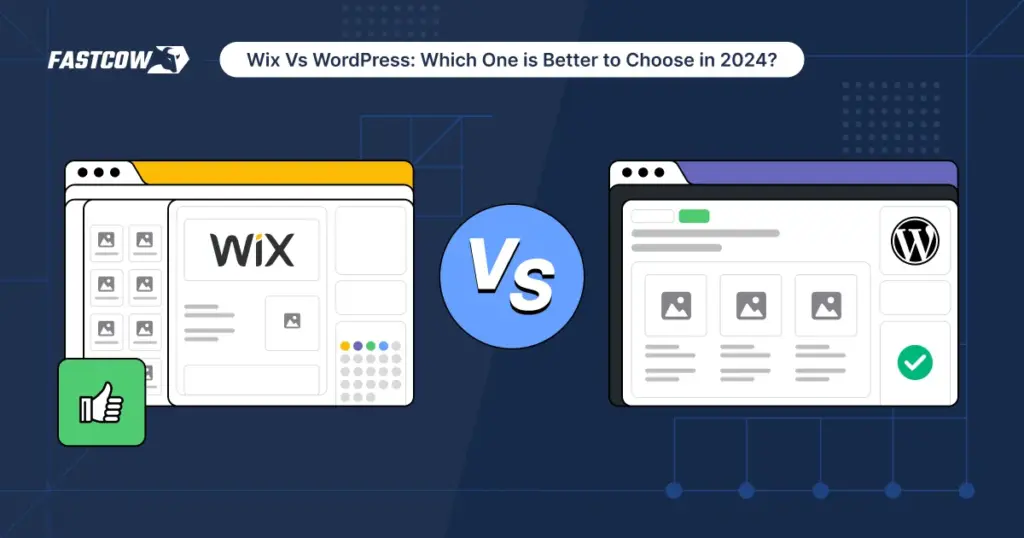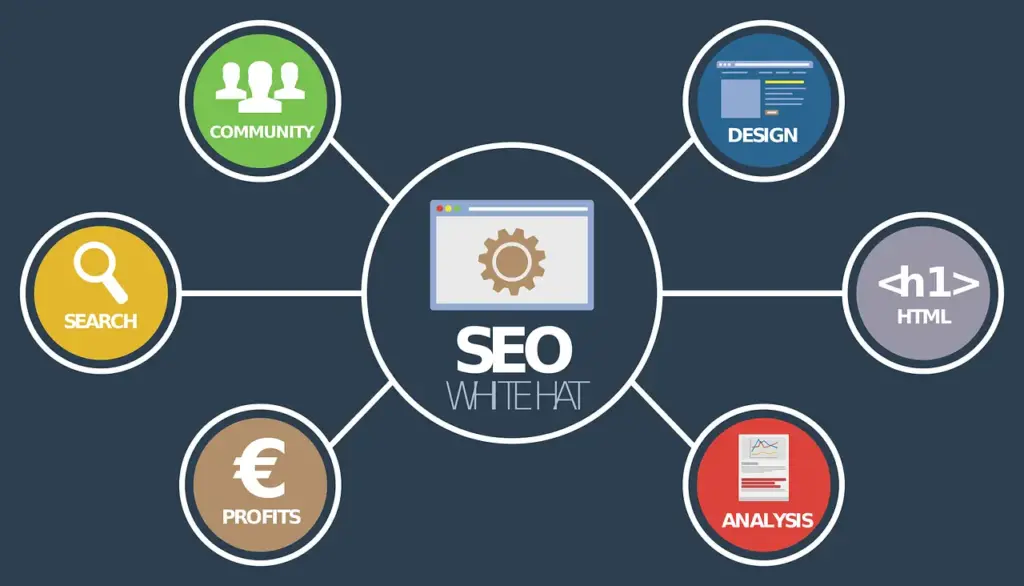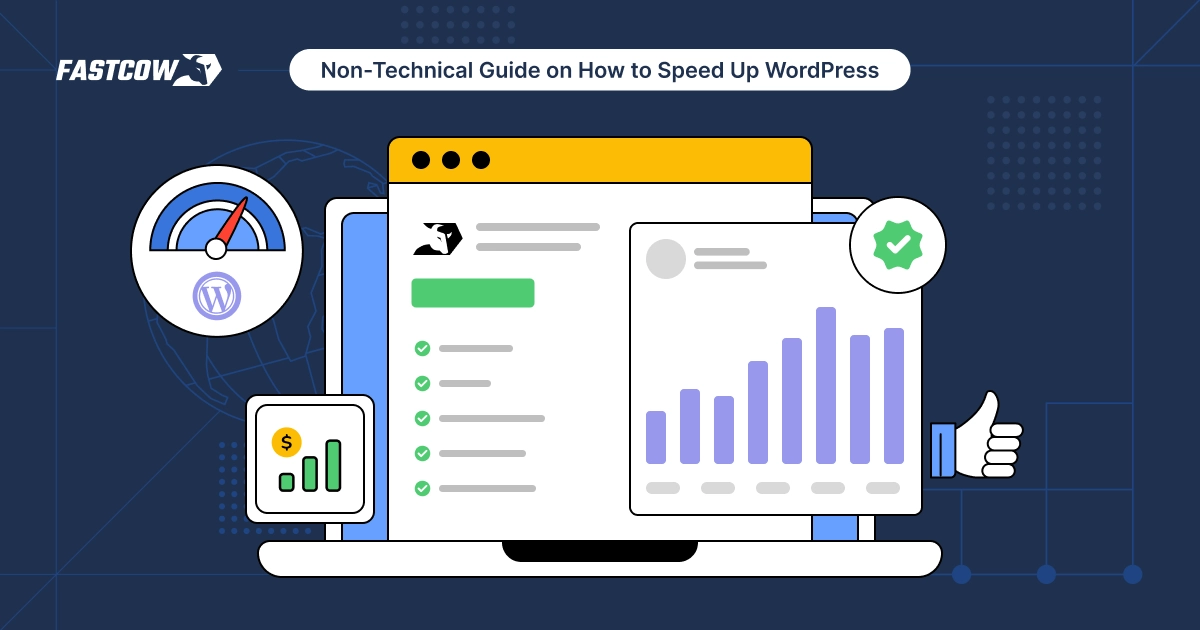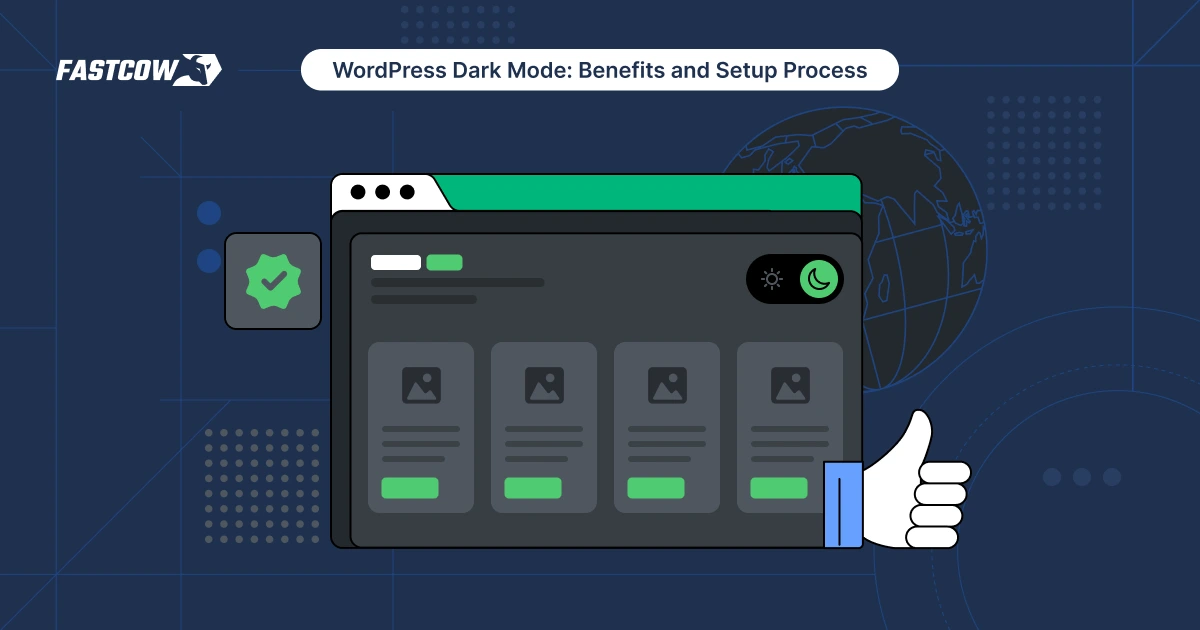
Wix and WordPress are two of the most popular platforms for building websites. Both offer powerful tools, but they work differently. Picking the right one is crucial for your site’s success.
Wix is a simple, hosted website builder with drag-and-drop design.
WordPress, on the other hand, is an open-source content management system offering extensive customization.
Each platform offers unique strengths in customization, functionality, and scalability. Knowing the differences will help you find the best fit for your project. Wix works for those wanting simplicity and speed, while WordPress suits those needing more control and flexibility.
- Wix vs WordPress: 14 Key
Differences
- Design & Themes: Which Platform Lets You Shine?
- Ease of Use: From Setup to Maintenance
- Customization: How Much Freedom Do You Have?
- Pricing: What Will It Cost You?
- eCommerce Capabilities: Setting Up an Online Store
- SEO & Marketing: Which Platform Helps You Rank Better?
- Blogging: Which Platform Is Built for Content Creation?
- Customer Support: Who’s Got Your Back?
- Security: Keeping Your Site Safe
- Flexibility: The Power to Expand or Stay Simple
- Data Ownership and Portability: Who Owns Your Site?
- Scalability: Growing With Your Website
- Multilingual Capabilities: Reaching a Global Audience
- Mobile Responsiveness: Optimizing for Every Device
- Final Verdict: Which Platform Should You Choose?
Wix vs WordPress: 14 Key Differences
Choosing between Wix and WordPress comes down to understanding your needs. Both platforms offer powerful features but cater to different users. Let’s break down the key differences in design, ease of use, and functionality to help you decide.
- Design & Themes: Which Platform Lets You Shine?

Credits: Pixabay
The design of your website matters. It defines how your visitors see and interact with your content. Let’s see how Wix vs WordPress stack up in offering design flexibility.
Wix’s Design Flexibility
Wix focuses on simplicity. It offers over 800 pre-designed templates that are easy to customize. Its drag-and-drop editor lets you move elements without coding. Wix ADI also automates the design process, creating a site based on your input. However, one limitation is that you can’t change templates after your site goes live.
WordPress’s Endless Theme Options
WordPress offers a huge range of over 11,000 free themes, with more from third-party providers. It allows easy switching between themes and deep customization. You can also use third-party page builders like Elementor or Divi for complete design control, giving you flexibility that scales with your needs.
Verdict: WordPress offers more flexibility and scalability, making it ideal for advanced users. Wix is perfect for beginners looking for ease without needing extensive customization.
- Ease of Use: From Setup to Maintenance
When choosing a platform, ease of use matters. Let’s compare how easy Wix vs WordPress makes it to set up and maintain your website.
Wix: Simple and User-Friendly
Wix is known for its simplicity. You can sign up and set up a website within minutes. The drag-and-drop editor is intuitive, while the AI-based Wix ADI can create your site for you. Maintenance is automatic—Wix handles all updates and security measures.
WordPress: A Bit of a Learning Curve
WordPress takes more time to set up. You’ll need to configure hosting and a domain. Its block editor (Gutenberg) helps you build pages and posts, but mastering plugins and third-party tools requires more effort. You also need to manage updates for themes, plugins, and security.
Verdict: Wix is easier for beginners and those who want a quick setup. WordPress offers more flexibility but requires time and effort to manage.
- Customization: How Much Freedom Do You Have?
When building a website, how much control you have over its design and features is key. Here’s how Wix or WordPress differ in terms of customization.
Wix Customization Limits
Wix offers a drag-and-drop editor that makes personalizing your website simple. You can easily change templates, colors, and layouts without coding. However, Wix has limited integration with third-party tools. While some custom code is possible, it’s restricted, making advanced customization harder to achieve.
WordPress Customization Freedom
WordPress gives you full control over your site. You can edit with CSS, HTML, and even PHP for advanced changes. WordPress integrates with thousands of third-party plugins, making it possible to add nearly any feature. Custom post types and fields offer even more flexibility, and full-site editing with blocks expands customization further.
Verdict: WordPress offers nearly limitless customization, while Wix is simpler but more restrictive for non-tech users.
- Pricing: What Will It Cost You?

Credits: Pixabay
Pricing is a crucial factor when choosing a website platform. Let’s break down the costs for both Wix vs WordPress.
Wix Pricing
Wix has a free plan, but it includes ads and branding. To remove these and unlock more features, premium plans start at $17/month and go up to $159/month for business needs.
WordPress Pricing
WordPress is free to use, but you’ll need to pay for hosting and a domain. Hosting costs range from $2.99 to $23.99/month, depending on the provider. Additional costs may include premium themes and plugins, which can range from $20 to $200, depending on your needs.
Verdict: WordPress offers better value in the long run, though the initial setup can seem more complicated. Wix is easier upfront with predictable pricing but limits scalability.
- eCommerce Capabilities: Setting Up an Online Store
Whether you’re selling physical products or services, eCommerce tools are essential. Let’s see how Wix vs WordPress compare for online stores.
Wix for eCommerce
Wix includes built-in eCommerce tools on its higher-tier plans. You can manage inventory, sell both digital and physical products, and accept payments through integrated gateways.
WordPress eCommerce with WooCommerce
WooCommerce is the go-to eCommerce solution for WordPress and is free to use. It allows full control over your store and offers extensions for subscriptions, memberships, bookings, and more. WordPress itself doesn’t charge transaction fees, though payment gateways like PayPal or Stripe will.
Verdict: WooCommerce on WordPress is better for large, scalable online stores. Wix is easier to set up for small businesses but has limitations.
- SEO & Marketing: Which Platform Helps You Rank Better?

Credits: Pixabay
Search engine optimization (SEO) is key to driving traffic to your site. WordPress vs Wix Both platforms offer tools, but their effectiveness differs.
Wix SEO Tools
Wix provides its built-in SEO Wiz tool for basic SEO tasks like adding meta tags, optimizing images, and generating sitemaps. It also integrates with Google Analytics and Google Search Console, but options for third-party SEO plugins are limited.
WordPress SEO Power
WordPress offers unmatched SEO flexibility with plugins like Yoast SEO and All in One SEO. You have full control over your URL structure, metadata, and site architecture. WordPress also has plugins for advanced features like social sharing, link-building, and page speed optimization.
Verdict: WordPress wins for SEO with its wide range of optimization tools. Wix works for basic SEO, but it lacks the depth WordPress provides.
- Blogging: Which Platform Is Built for Content Creation?
Blogging is essential for many websites, so you need a platform that supports smooth content creation. Let’s compare Wix vs WordPress for blogging.
Wix Blogging Features
Wix offers basic blogging tools like scheduled posts, categories, and tags. However, its customization for post layouts is limited, and managing comments isn’t as advanced. For casual blogging, it works, but it lacks depth for more complex needs.
WordPress for Blogging
WordPress was originally designed for blogging, so it excels in this area. It includes robust content management tools, advanced commenting systems, and excellent SEO capabilities. You can customize post types and layouts, making it a powerhouse for content creators.
Verdict: WordPress is the better choice for serious bloggers. It offers more control, customization, and powerful content tools.
- Customer Support: Who’s Got Your Back?
When building a site, having support when things go wrong is crucial. Here’s how Wix and WordPress handle customer support.
Wix Support
Wix provides 24/7 customer support across all plans. Users can access an extensive help center filled with tutorials and a community forum for additional help. It’s designed to be beginner-friendly, so getting assistance is straightforward.
WordPress Support
WordPress doesn’t have an official support team. Instead, support depends on your hosting provider. Many hosting services offer dedicated support for WordPress users. Additionally, WordPress has a large online community with forums and detailed documentation. Premium themes and plugins often come with their own support.
Verdict: Wix offers direct, easy-to-reach support, making it more convenient for beginners. WordPress users rely on hosting providers and community resources, which can be less immediate.
- Security: Keeping Your Site Safe

Credits: Pixabay
Security is a top priority when running any website. Let’s see how Wix vs WordPress handle security.
Wix Security
Wix takes care of all security measures automatically. It includes SSL certificates, automatic updates, and built-in protection against DDoS attacks. Users don’t need to manage anything, as Wix handles everything in the background.
WordPress Security
With WordPress, security depends more on the user. You must manage updates for the platform, plugins, and themes. However, many security plugins, like Wordfence and Sucuri, provide advanced features. Your hosting quality also plays a crucial role in overall site security.
Verdict: Wix is hassle-free for security, but WordPress offers more advanced options if you’re willing to put in the effort.
- Flexibility: The Power to Expand or Stay Simple
Flexibility determines how much control you have over your site’s growth and customization. Let’s compare Wix vs WordPress for flexibility.
Wix’s Approach to Flexibility
Wix is great for users who want simplicity without much effort. However, it operates in a closed system, making it hard to migrate or add features beyond what’s in the App Market. Customizations are limited to what Wix offers, with minimal coding flexibility.
WordPress’s Unlimited Flexibility
WordPress shines when it comes to flexibility. It can handle anything from personal blogs to complex websites. You can move your site, change themes, or add new plugins at any time. Developers have access to the full codebase, allowing endless customization and control.
Verdict: WordPress offers unmatched flexibility, ideal for growing sites. Wix is easier for users who prioritize simplicity but need fewer customization options.
- Data Ownership and Portability: Who Owns Your Site?
Owning your data and having the ability to move it is crucial for long-term website success. Let’s see how wordpress or wix handle data ownership.
Wix’s Data Ownership
Wix controls the hosting, meaning you have limited access to your data. Migrating your site from Wix to another platform is hard. You might need to rebuild the site entirely. Options for exporting content, especially blog posts and custom designs, are also limited.
WordPress’s Complete Ownership
With WordPress, you fully own your website’s data. You can back up, export, and migrate your site to any hosting provider or platform without limitations. You also control how your data is stored, giving you complete flexibility.
Verdict: WordPress provides full data control and easy migration. Wix keeps you tied to its system, complicating data transfers.
- Scalability: Growing With Your Website
As your website grows, you’ll need a platform that can expand with it. Let’s compare the scalability of Wix vs WordPress.
Wix’s Scalability Limitations
Wix works well for small to medium-sized sites but can hit limits when scaling for larger projects. The performance of your site depends on the plan you choose, which may not handle heavy traffic or complex features. It’s not ideal for businesses that need advanced technical growth.
WordPress’s Infinite Scalability
WordPress offers limitless scalability. Whether you’re running a personal blog or a massive eCommerce store, WordPress can grow with your needs. It supports powerful plugins and can run on various hosting plans, including dedicated servers, making it great for high-traffic websites.
Verdict: WordPress is perfect for scalable projects. Wix is better for small websites without complex growth needs.
- Multilingual Capabilities: Reaching a Global Audience
Expanding your website to different languages is key to reaching a broader audience. Here's how Wix and WordPress handle multilingual support.
Wix’s Multilingual Support
Wix offers built-in support for creating multilingual websites. You can easily translate your pages into different languages using a simple interface. However, customization for SEO and localization in multiple languages is limited. It lacks flexibility when it comes to language-specific SEO optimizations.
WordPress’s Multilingual Power
WordPress shines in multilingual support through plugins like WPML and Polylang. These tools let you create fully localized versions of your site with advanced SEO for each language. You can control every aspect, from URLs to localized content, ensuring a seamless experience for global visitors.
Verdict: WordPress offers superior multilingual capabilities, providing more control over SEO and localization. Wix makes it easier to start but with fewer advanced options.
- Mobile Responsiveness: Optimizing for Every Device

Credits: Pixabay
With mobile traffic on the rise, optimizing your website for smartphones and tablets is essential. Let’s compare the mobile responsiveness of Wix and WordPress.
Wix’s Mobile Optimization
Wix templates are mobile-responsive, and the platform includes a mobile editor. This editor allows you to adjust your site’s layout for mobile devices easily. However, the options for customizing mobile layouts are limited compared to desktop editing. The performance may vary depending on your chosen template.
WordPress’s Superior Mobile Responsiveness
Most WordPress themes are built to be mobile-responsive out of the box. You have full control over how your site appears on mobile devices, with plugins available to further optimize performance. Caching plugins like WP Rocket can boost your mobile site’s speed, ensuring smooth performance across all devices.
Verdict: WordPress gives you more control over mobile optimization and performance. Wix offers a simpler approach, but customization is limited.
Here’s a table highlighting the key differences between Wix vs WordPress:
| Category | Wix | WordPress |
| Design & Themes | 800+ pre-designed templates; drag-and-drop editor; limited post-launch template change | 11,000+ free themes; highly customizable with third-party page builders (Elementor, Divi) |
| Ease of Use | Simple, user-friendly; setup in minutes; automatic maintenance | Requires setup (hosting, domain); steeper learning curve; manual updates |
| Customization | Limited third-party integrations; basic custom code | Full control with CSS, HTML, PHP; extensive plugin support for advanced customization |
| Pricing | Free plan with ads; premium plans from $17 to $159/month | Free platform; hosting from $2.99 to $23.99/month, with optional premium themes/plugins |
| eCommerce | Built-in tools; extra transaction fees on higher-tier plans | WooCommerce plugin; no platform fees, scalable for large stores |
| SEO & Marketing | Built-in SEO Wiz; limited third-party SEO tools | Full SEO control with plugins like Yoast SEO; advanced features for optimization |
| Blogging | Basic blogging tools; limited post customization | Originally designed for blogging; advanced content management and SEO capabilities |
| Customer Support | 24/7 direct support; extensive help center and community forums | Support depends on hosting provider; large community and forums for help |
| Security | Automatic security updates and SSL certificates | User-managed security updates; advanced plugins like Wordfence for protection |
| Flexibility | Limited to Wix’s closed system; restricted migration and customization | Fully customizable, flexible for different site types; easy migration and expansion |
| Data Ownership | Limited control; difficult to migrate away from Wix | Full ownership of data; easy backup, export, and migration |
| Scalability | Suitable for small to medium sites; limited scaling for large, complex projects | Scalable for all site sizes; handles high traffic and complex requirements |
| Multilingual | Built-in support for multiple languages; basic SEO for translated content | Advanced multilingual support with plugins (WPML, Polylang); full SEO control for each language |
| Mobile Responsiveness | Mobile-responsive templates; limited customization in mobile layout | Mobile-responsive themes; plugins for optimization and caching for fast performance |
Final Verdict: Which Platform Should You Choose?
Choosing between Wix and WordPress depends on your goals and technical comfort. Both platforms excel in different areas, so let's break it down.
Wix is ideal for beginners or users without technical skills. It offers an all-in-one platform that includes hosting, templates, and built-in support. It's perfect for small businesses, portfolios, or personal sites that don’t require extensive customization. Its simple interface and user-friendly features make website building quick and hassle-free.
WordPress suits users who need full control over their site’s design and functionality. It’s great for businesses looking for scalability, advanced SEO, and eCommerce options. Bloggers and content creators will appreciate its flexibility in managing and publishing content. WordPress can handle complex requirements and future growth, making it a long-term solution.
So which is better: wix or wordpress. WordPress is the better choice for long-term growth, customization, and flexibility. Wix, however, stands out for ease of use and a faster setup. Your choice should depend on your specific needs and how comfortable you are with technology.
FAQs
Q. Is Wix better than WordPress?
Wix is better for beginners who want a simple, all-in-one solution with no technical setup. WordPress offers more customization, scalability, and flexibility, making it better for businesses or users with more complex needs. The choice depends on your technical comfort and long-term goals.
Q. What is the downside of Wix?
Wix limits customization and flexibility compared to WordPress. Once you choose a template, you can’t change it after publishing. It also has fewer SEO and scalability options, making it less suitable for larger or growing websites needing advanced features.
Q. Does Google prefer WordPress or Wix?
Google doesn't officially favor either platform. However, WordPress offers more advanced SEO tools and better control over site structure, making it easier to optimize for search engines. Wix provides basic SEO tools, which work well for smaller sites but are less flexible for advanced SEO strategies.
Q. Should I switch from Wix to WordPress?
Switching to WordPress is a good idea if you need more customization, better SEO options, and the ability to scale your website. WordPress offers more control over your site’s design and functionality, making it ideal for businesses planning long-term growth.
Q. Is WordPress the best for building a website?
WordPress is one of the best platforms for building websites because of its flexibility, vast customization options, and scalability. It suits a range of website needs, from simple blogs to large eCommerce stores. However, it has a steeper learning curve compared to drag-and-drop builders like Wix.
Q. Can I transfer my website from Wix to WordPress?
Yes, you can transfer your website from Wix to WordPress, but it’s not a simple process. You’ll need to manually move your content or use third-party migration tools. However, once on WordPress, you’ll gain more control over your site’s design and functionality.
































